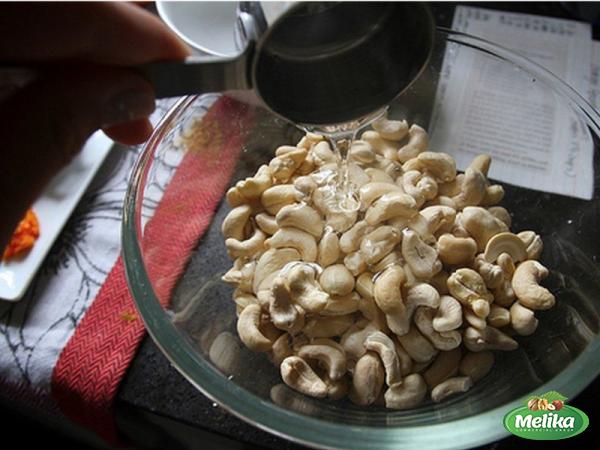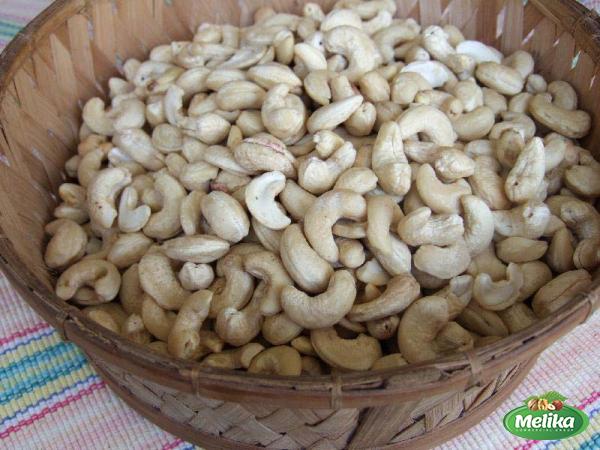The cashew nut industry plays a significant role in India’s agricultural and export sectors. India is one of the largest producers, processors, and exporters of cashew nuts worldwide. This article provides an in-depth summary of the cashew market in India, including its production, processing, consumption, and export trends, as well as the challenges and opportunities faced by the industry. 1. Production: India is a major producer of cashew nuts, accounting for around 22% of the global production. The primary cashew-growing regions in India are the states of Maharashtra, Karnataka, Andhra Pradesh, Kerala, and Tamil Nadu. The production of cashew nuts in India has been steadily increasing over the years, supported by favorable climatic conditions and agricultural practices. 2. Processing: India is renowned for its cashew-processing capabilities, with a significant number of processing units spread across the country. The processing industry offers employment opportunities and contributes to the rural economy. These processing units play a crucial role in value addition and ensure that cashews meet international quality standards. Traditional processing methods, such as steam roasting, are still prevalent, although technological advancements have led to the adoption of mechanized processing techniques in some units. 3. Consumption: Domestic consumption of cashew nuts in India has witnessed a significant rise due to the growing awareness about its various health benefits. Cashew nuts are rich in vitamins, minerals, and healthy fats, making them a popular snack option. With increasing disposable incomes and changing lifestyles, there has been a rise in demand for processed cashew products, including roasted cashews, flavored cashews, and cashew butter. The demand for cashew nuts as an ingredient in the food processing industry and the confectionery sector has also grown. 4. Export Market: India is a major player in the global cashew export market. The country exports both raw cashew nuts and processed cashew kernels to various countries worldwide. The major export destinations include the United States, European Union, Middle East, and Southeast Asian countries. The growth in the export market can be attributed to India’s competitive pricing, consistent quality, and efficient processing capabilities. The government has also introduced various export promotion schemes to support the cashew export industry.

nuts
 5. Opportunities and Challenges: Despite its prominent position in the cashew market, the industry faces several challenges that need to be addressed. These challenges include productivity improvement, quality control, pest and disease management, inadequate infrastructure, and limited access to credit for small-scale farmers and processors. Additionally, competition from other cashew-producing countries and fluctuations in global market prices pose challenges for Indian cashew exporters. However, there are also numerous opportunities for growth, including value addition through product diversification, increasing productivity through modern farming techniques, and tapping into new export markets and expanding the domestic consumer base. Conclusion: The cashew market in India is dynamic and thriving, with India being one of the leading producers, processors, and exporters of cashew nuts globally. The industry benefits from favorable climatic conditions, robust processing capabilities, and increasing domestic and international demand. However, there are challenges to overcome, including productivity improvement, quality control, and infrastructure development. With the right strategies, investment, and support, the Indian cashew industry can continue to grow and maintain its prominent position in the global market. Cashew Market Trends: 1. Increasing Demand for Organic Cashews: The demand for organic food products is on the rise globally, and the cashew industry is no exception. Consumers are becoming more conscious of their health and the environmental impact of food production. As a result, there is an increasing demand for organic cashews, which are grown without the use of synthetic fertilizers or pesticides. India has a strong position in organic cashew production, and manufacturers are capitalizing on this trend by offering organic cashews to meet the growing demand. 2. Rising Popularity of Cashew-Based Snack Products: Cashews are not only consumed as whole nuts but also find their way into various snack products. Cashew-based snacks, such as flavored cashews, cashew nut bars, and trail mixes, are gaining popularity among health-conscious consumers. These snack products are often marketed as nutritious, protein-rich alternatives to traditional snacks. This trend opens up opportunities for cashew processors to diversify their product offerings and cater to the changing preferences of consumers.
5. Opportunities and Challenges: Despite its prominent position in the cashew market, the industry faces several challenges that need to be addressed. These challenges include productivity improvement, quality control, pest and disease management, inadequate infrastructure, and limited access to credit for small-scale farmers and processors. Additionally, competition from other cashew-producing countries and fluctuations in global market prices pose challenges for Indian cashew exporters. However, there are also numerous opportunities for growth, including value addition through product diversification, increasing productivity through modern farming techniques, and tapping into new export markets and expanding the domestic consumer base. Conclusion: The cashew market in India is dynamic and thriving, with India being one of the leading producers, processors, and exporters of cashew nuts globally. The industry benefits from favorable climatic conditions, robust processing capabilities, and increasing domestic and international demand. However, there are challenges to overcome, including productivity improvement, quality control, and infrastructure development. With the right strategies, investment, and support, the Indian cashew industry can continue to grow and maintain its prominent position in the global market. Cashew Market Trends: 1. Increasing Demand for Organic Cashews: The demand for organic food products is on the rise globally, and the cashew industry is no exception. Consumers are becoming more conscious of their health and the environmental impact of food production. As a result, there is an increasing demand for organic cashews, which are grown without the use of synthetic fertilizers or pesticides. India has a strong position in organic cashew production, and manufacturers are capitalizing on this trend by offering organic cashews to meet the growing demand. 2. Rising Popularity of Cashew-Based Snack Products: Cashews are not only consumed as whole nuts but also find their way into various snack products. Cashew-based snacks, such as flavored cashews, cashew nut bars, and trail mixes, are gaining popularity among health-conscious consumers. These snack products are often marketed as nutritious, protein-rich alternatives to traditional snacks. This trend opens up opportunities for cashew processors to diversify their product offerings and cater to the changing preferences of consumers.
Specifications of nuts
 3. Technological Advancements in Processing: Advancements in technology have revolutionized the cashew nut processing industry in India. Traditional methods, such as hand-operated shelling, have been replaced by mechanized and automated processes that improve efficiency and productivity. Modern processing machinery helps minimize labor costs, increase yield, and maintain consistency in the quality of processed cashews. Cashew processors are investing in these technologies to stay competitive and meet the stringent quality standards required by the export market. 4. Government Initiatives to Support Cashew Industry: The Indian government has taken several initiatives to support and promote the cashew industry. These initiatives include schemes to provide financial assistance, subsidies, and training programs to cashew farmers and processors. The government also encourages cashew cultivation by providing incentives for the establishment of processing units in cashew-growing regions. These measures aim to enhance productivity, quality, and competitiveness, thereby strengthening the position of the Indian cashew industry in the global market. 5. Export Market Challenges and Opportunities: While India enjoys a significant share in the global cashew export market, there are challenges that need to be addressed. One major challenge is the intense competition from other cashew-producing countries, such as Vietnam and Ivory Coast. These countries offer lower production costs, posing a threat to Indian exporters. However, India’s advantageous geographical location, established processing capabilities, and access to major international markets provide opportunities for Indian exporters to maintain their market share and explore new export destinations. 6. Quality Control and Certification: Maintaining consistent product quality is crucial for the cashew industry to meet international market requirements. Indian cashew exporters need to adhere to rigorous quality control standards and obtain certifications such as ISO, HACCP, and organic certifications. These certifications provide assurance to global buyers regarding product safety, traceability, and adherence to quality standards. Cashew processors and exporters must invest in quality control measures to enhance their competitiveness and credibility in the international market. 7. Sustainability and Ethical Sourcing: Sustainability and ethical sourcing are important considerations for consumers, and the cashew industry is increasingly focusing on these aspects. Ethical sourcing involves ensuring fair wages and safe working conditions for laborers involved in cashew processing. Sustainability efforts include promoting environmentally friendly farming practices, water conservation, and minimizing waste. Cashew processors are implementing sustainable sourcing and production practices to meet the growing consumer demand for socially and environmentally responsible products.
3. Technological Advancements in Processing: Advancements in technology have revolutionized the cashew nut processing industry in India. Traditional methods, such as hand-operated shelling, have been replaced by mechanized and automated processes that improve efficiency and productivity. Modern processing machinery helps minimize labor costs, increase yield, and maintain consistency in the quality of processed cashews. Cashew processors are investing in these technologies to stay competitive and meet the stringent quality standards required by the export market. 4. Government Initiatives to Support Cashew Industry: The Indian government has taken several initiatives to support and promote the cashew industry. These initiatives include schemes to provide financial assistance, subsidies, and training programs to cashew farmers and processors. The government also encourages cashew cultivation by providing incentives for the establishment of processing units in cashew-growing regions. These measures aim to enhance productivity, quality, and competitiveness, thereby strengthening the position of the Indian cashew industry in the global market. 5. Export Market Challenges and Opportunities: While India enjoys a significant share in the global cashew export market, there are challenges that need to be addressed. One major challenge is the intense competition from other cashew-producing countries, such as Vietnam and Ivory Coast. These countries offer lower production costs, posing a threat to Indian exporters. However, India’s advantageous geographical location, established processing capabilities, and access to major international markets provide opportunities for Indian exporters to maintain their market share and explore new export destinations. 6. Quality Control and Certification: Maintaining consistent product quality is crucial for the cashew industry to meet international market requirements. Indian cashew exporters need to adhere to rigorous quality control standards and obtain certifications such as ISO, HACCP, and organic certifications. These certifications provide assurance to global buyers regarding product safety, traceability, and adherence to quality standards. Cashew processors and exporters must invest in quality control measures to enhance their competitiveness and credibility in the international market. 7. Sustainability and Ethical Sourcing: Sustainability and ethical sourcing are important considerations for consumers, and the cashew industry is increasingly focusing on these aspects. Ethical sourcing involves ensuring fair wages and safe working conditions for laborers involved in cashew processing. Sustainability efforts include promoting environmentally friendly farming practices, water conservation, and minimizing waste. Cashew processors are implementing sustainable sourcing and production practices to meet the growing consumer demand for socially and environmentally responsible products.
buy nuts
 8. Product Diversification and Value Addition: To remain competitive in the cashew market, Indian processors are actively diversifying their product portfolio. They are expanding beyond whole cashew nuts and investing in value-added products such as cashew kernels, cashew pastes, cashew butters, and cashew-based spreads. These value-added products cater to different consumer preferences and provide higher profit margins. By focusing on product diversification and value addition, cashew processors can capture new market segments and increase their revenue streams. 9. Research and Development: Continued investment in research and development is vital for the growth of the cashew industry. Efforts are being made to develop improved cashew varieties that have higher yields, better disease resistance, and greater nutritional value. There is also ongoing research to identify effective pest and disease management strategies to ensure healthy crop production. Collaborative initiatives between the government, research institutions, and industry stakeholders are critical in driving innovation and enhancing the overall competitiveness of the cashew sector. 10. Financial Support and Credit Facilities: Access to financial support and credit facilities is essential for small-scale cashew farmers, processors, and exporters. Lack of adequate credit facilities often hinders the growth potential of small-scale stakeholders in the cashew industry. Government and financial institutions need to collaborate to provide affordable credit and financing options, including loans, subsidies, and microfinance schemes, to support the cashew value chain. This financial assistance will enable farmers and processors to invest in modern farming techniques, machinery, and technology, thereby improving productivity and competitiveness. Conclusion: The cashew market in India is thriving, with the country’s strong production capabilities, processing expertise, and global market presence. However, challenges such as competition, quality control, sustainability, and access to credit need to be addressed to sustain the industry’s growth. With government support, technological advancements, and a focus on product diversification and sustainability, the Indian cashew industry can further strengthen its position in the global market and contribute to the overall economic growth of the country.
8. Product Diversification and Value Addition: To remain competitive in the cashew market, Indian processors are actively diversifying their product portfolio. They are expanding beyond whole cashew nuts and investing in value-added products such as cashew kernels, cashew pastes, cashew butters, and cashew-based spreads. These value-added products cater to different consumer preferences and provide higher profit margins. By focusing on product diversification and value addition, cashew processors can capture new market segments and increase their revenue streams. 9. Research and Development: Continued investment in research and development is vital for the growth of the cashew industry. Efforts are being made to develop improved cashew varieties that have higher yields, better disease resistance, and greater nutritional value. There is also ongoing research to identify effective pest and disease management strategies to ensure healthy crop production. Collaborative initiatives between the government, research institutions, and industry stakeholders are critical in driving innovation and enhancing the overall competitiveness of the cashew sector. 10. Financial Support and Credit Facilities: Access to financial support and credit facilities is essential for small-scale cashew farmers, processors, and exporters. Lack of adequate credit facilities often hinders the growth potential of small-scale stakeholders in the cashew industry. Government and financial institutions need to collaborate to provide affordable credit and financing options, including loans, subsidies, and microfinance schemes, to support the cashew value chain. This financial assistance will enable farmers and processors to invest in modern farming techniques, machinery, and technology, thereby improving productivity and competitiveness. Conclusion: The cashew market in India is thriving, with the country’s strong production capabilities, processing expertise, and global market presence. However, challenges such as competition, quality control, sustainability, and access to credit need to be addressed to sustain the industry’s growth. With government support, technological advancements, and a focus on product diversification and sustainability, the Indian cashew industry can further strengthen its position in the global market and contribute to the overall economic growth of the country.











Your comment submitted.